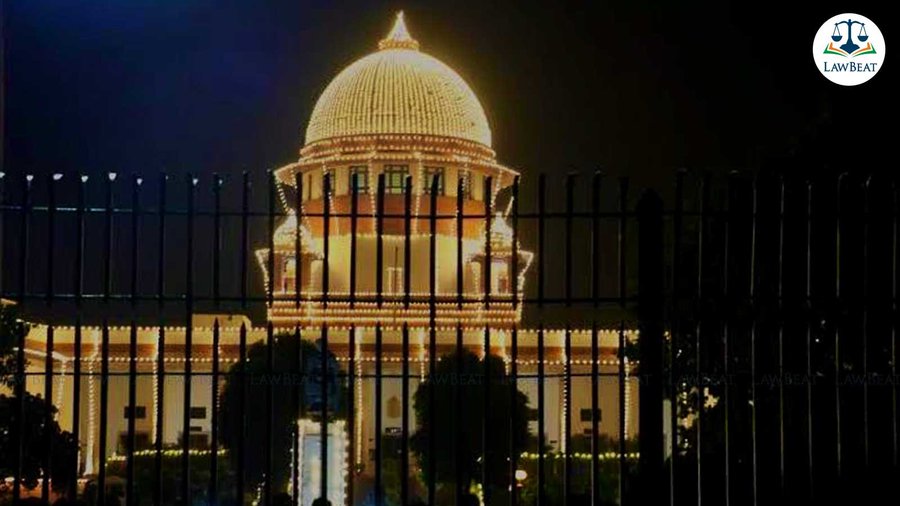'Money can't replace lost life, but just compensation is essential': SC in road accident case

The Supreme Court said the High Court had utterly failed in delving into the aspect of the correctness of compensation granted under other heads by MACT
The Supreme Court on January 6, 2025, said that money cannot substitute a life lost but an effort has to be made for grant of just compensation so far as money can compensate, as it granted enhanced compensation to a man who was rendered 60% permanently disabled in a road accident.
A bench of Justices Sanjay Karol and Prasanna B Varale said, "Perfect compensation is hardly possible but one has to keep in mind that victim has suffered at the hands of the wrongdoer and court must take care to give him full and fair compensation for that he had suffered."
Referring to Arvind Kumar Mishra Vs New India Assurance Co Ltd & Anr (2010), the bench said, in some cases for personal injury, the claim could be in respect of lifetime's earnings lost because, though he will live, he cannot earn his living. In others, the claim may be made for partial loss of earnings.
"Each case has to be considered in the light of its own facts and at the end, one must ask whether the sum awarded is a fair and reasonable sum," the bench said.
Court was dealing with an appeal filed by one Atul Tiwari, who suffered various serious injuries including injuries to head, jaws, legs, knees, chest and ribs for which he was operated on three occasions. He was travelling to Panchmarhi with his friend on a motorcycle on October 3, 2009, when they met with an accident with a truck, being driven on the wrong side and in a negligent manner.
The Motor Accidents Claims Tribunal, Bhopal Madhya Pradesh in 2014 granted him a compensation of Rs 19,43,800 along with interest at rate of 7% per annum.
On cross appeals, the High Court partially allowed the appeal of the petitioner thereby granted an enhancement in the compensation for Loss of Income from Rs 11,23,200 to Rs 27,21,600.
Upon the injured victim's appeal, the bench examined whether the compensation should have been enhanced or not.
Court referred to Sarla Verma & Ors vs Delhi Transport Corporation & Anr (2009), which has well settled the rule for adoption of multiplier very lucidly and has also formulated the principles for assessment of compensation.
It also relied upon National Insurance Company Ltd Vs Pranay Sethi & Ors (2017), which has highlighted the aspect of addition of salary towards future prospects considering the nature of job of the victim and his age.
The bench also pointed out the top court in the case of Raj Kumar vs Ajay Kumar & Anr (2011) has explained process of considering the factors while assessing the amount of compensation in case of permanent disability caused to the victim of motor accident.
Going through the judgement of High Court, the bench noted, it could be seen that the High Court had rightly adopted the settled position of law in assessing the notional income and subsequently enhancing the Loss of Income of the petitioner after considering his 60% disability.
"However, the High Court has utterly failed in delving into the aspect of correctness of compensation granted under other heads by MACT," the bench said.
In the case, the court also noted the High Court had failed to consider the fact that MACT despite taking note of the doctor’s medical opinion, had failed in granting the compensation for the recommended period of time which would have been sufficient for the petitioner.
Likewise, the bench also pointed out, the High Court had also failed to consider that MACT had neglected the fact of uncertainty as to the period of recovery and had wrongly granted the compensation with respect to the therapies and attendant charges for a specified duration only.
The High Court also failed to see the MACT had acted against the recommendations by the doctors as to the period of recovery, it said.
"In our considered opinion, the compensation granted under the head – non-pecuniary compensation is not sufficient to meet the needs of the petitioner. Hence, in view of the erroneous consideration by the MACT in granting compensation warrants for its enhancement," the bench said.
After considering the facts and the law laid down by the court, the bench finally ordered payment of Rs 48 lakh compensation, which was the sum petitioner demanded in his petition before the MACT.
Case Title: Atul Tiwari Vs Regional Manager, Oriental Insurance Company Limited
